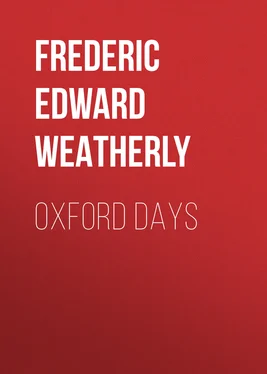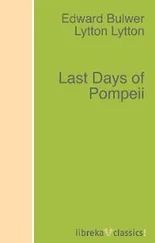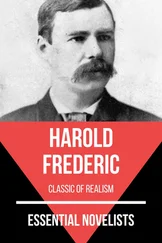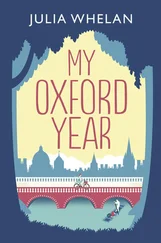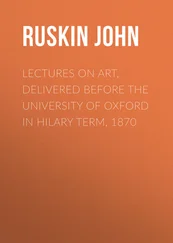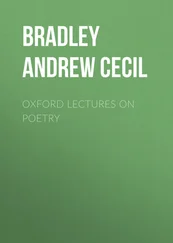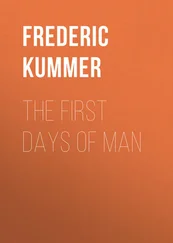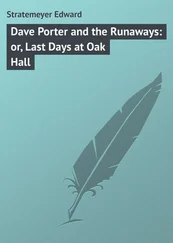Frederic Edward Weatherly - Oxford Days
Здесь есть возможность читать онлайн «Frederic Edward Weatherly - Oxford Days» — ознакомительный отрывок электронной книги совершенно бесплатно, а после прочтения отрывка купить полную версию. В некоторых случаях можно слушать аудио, скачать через торрент в формате fb2 и присутствует краткое содержание. Жанр: foreign_antique, foreign_edu, на английском языке. Описание произведения, (предисловие) а так же отзывы посетителей доступны на портале библиотеки ЛибКат.
- Название:Oxford Days
- Автор:
- Жанр:
- Год:неизвестен
- ISBN:нет данных
- Рейтинг книги:5 / 5. Голосов: 1
-
Избранное:Добавить в избранное
- Отзывы:
-
Ваша оценка:
- 100
- 1
- 2
- 3
- 4
- 5
Oxford Days: краткое содержание, описание и аннотация
Предлагаем к чтению аннотацию, описание, краткое содержание или предисловие (зависит от того, что написал сам автор книги «Oxford Days»). Если вы не нашли необходимую информацию о книге — напишите в комментариях, мы постараемся отыскать её.
Oxford Days — читать онлайн ознакомительный отрывок
Ниже представлен текст книги, разбитый по страницам. Система сохранения места последней прочитанной страницы, позволяет с удобством читать онлайн бесплатно книгу «Oxford Days», без необходимости каждый раз заново искать на чём Вы остановились. Поставьте закладку, и сможете в любой момент перейти на страницу, на которой закончили чтение.
Интервал:
Закладка:
Anything like opposition to the regulation appears at present to be useless. One daring undergraduate at Paul’s, who ventured to remonstrate with his college dean (the authority in such matters), was met with this characteristic answer:—“It is our system. If you don’t like it, the college gates are open. You can remove your name from the college books. We won’t detain you.”—an answer perfectly admissible from the proprietor of any establishment, but insolent and unwarrantable from one who, after all, is but an administrator in a corporate institution.
And so it would be possible to go on and enumerate many instances in which not only custom among his companions, but college regulations compel the undergraduate to be extravagant and wasteful. Homes are crippled, younger brothers and sisters deprived of the education which is their due, and the much-vaunted University extension limited by the very administration of the bodies that ought, and do profess, to foster it. Questions of domestic economy are ignored by the various commissions, though they lie at the very root of University extension. Let additional Scholarships be founded to enable more students to come to the University; let additional teaching power be endowed with professorships, lectureships, and readerships, by all means; but let perquisites be pruned down; let the enormous profits of catering cooks and butlers be decreased; let room-rent be lowered; let “servants’ dues” pay the servants, and not need to be supplemented by charges which never appear in the college accounts; let trade be free in the town; let every man buy where he pleases; that is the way to extend the benefits of University education—that is the way to enable those to profit by it who are at present debarred—that is the way to enable families, which now struggle to send one son to the University, to send two for an equivalent outlay. There can be no doubt of the unnecessary waste and extravagance in the domestic economy of the colleges when it is remembered that though collegiate life, based as it is on communistic principles, ought to be cheaper than any other form of student life, as a matter of fact it is considerably more expensive.
To return to Frank’s breakfast. He found some difficulty in boiling his eggs and making his tea. But he concealed his ignorance and ate the eggs, and drank his tea like dish-water.
About a quarter to ten some one banged at his door, and entered with the bang. The visitor was Crawford, of Brasenose, an old school-fellow of Frank’s, who had gone up about three years previously.
“Hullo, young man! not finished breakfast yet!”
His cheery greeting was delightful to Frank, who felt he had in him a true friend.
A man about three years senior to a freshman—what a power, for good or evil, he has! His seniority inspires reverence and commands imitation. Luckily, Crawford was a thoroughly sterling fellow. He had come to Oxford in earnest. When he worked he worked; when he played he played. There was the same vigour in his work as in his “stroke” on the river or “rush” at football. He kept chapels regularly; he said, because morning-chapel gave him a long day. There was a more earnest reason concealed behind this; but he had a horror of the dangers of cant. He knew what lectures were worth attending, and attended them. He ridiculed and cut the worthless. He knew who were the best “coaches,” and said so. He abused the charlatans. In all matters of social etiquette he was an old-fashioned Conservative; for example, he always wore a black coat and tall hat on Sundays, and roundly abused those who loafed in light suits; and he never carried an umbrella or wore gloves when attired in cap and gown—a rather silly custom, perhaps; but its observance in the face of innovations marks the man.
After a little chat on school matters, Crawford told Frank he was going to the University sermon; and without any compunction told him—not asked him—to accompany him.
Frank, nothing loth, took his cap and gown, and they went together.
St. Mary’s does double duty: as a parish church and as the University church; and here the University sermons are preached at 10.30 a.m. and 2 p.m. on each Sunday in full term, except those of the Dean of Christ-Church, or the Fellows of New College, Magdalen, and Merton, which are or may be preached in the cathedral and in the chapels of those colleges respectively.
The nave—the part appropriated to the University—was crowded when Frank and his companion entered, for the preacher was a popular one. In the gallery, facing that by the west window assigned to undergraduates, the University organist, Mr. Taylor, was already seated at the organ, with six or eight chorister boys round him. One of these hung a board, with the number of the selected hymn, over the gallery, and then the voluntary commenced.
At 10.30 precisely the procession entered at the north door: the vice-chancellor, preceded by his mace-bearers, the esquire bedels and marshals, and followed by the heads of houses, the preacher, and the proctors. Then the whole congregation rose and, led by the choristers, sang the hymn appointed. Afterwards came the quaint “bidding prayer,” still used in most cathedrals, but made especially quaint in a University city by the long lists of founders and benefactors; and then the sermon. At a quarter to twelve all was over, and Frank was sitting in the window of Crawford’s rooms in Brasenose; and as he looked out on the sunny Radcliffe Square, with St. Mary’s graceful spire, the black frowning “schools,” and the pepper-box towers of All Souls, he heard with reverent admiration (for he was, in his way, somewhat of a poet) that these were Bishop Heber’s rooms, that here he must have sat, and here he must have written that famous Newdigate prize-poem, “Palestine,” by which he will always be remembered.
Over the chimney looking-glass hung a gilded face, with an enormous nose, the emblem of the college. The pictures on the panelled walls Frank soon became more intimately acquainted with, for he found copies in most of his friends’ rooms. There were “The Huguenots,” “The Black Brunswicker,” Landseer’s “Challenge,” “Retreat,” and “Monarch of the Glen,” of course, and many others of a more recent date. Three or four pairs of boxing-gloves lay in one corner, dumb-bells in another. Against the wall, in racks, pipes of various descriptions, from the short briar-root to the china bowl of the German student (for Crawford had spent six months once upon a time in Heidelberg), racket-bats, and an oar, fondly cherished, that had helped to bring victory to the Brasenose “four” a few years back at Henley.
At one o’clock Crawford’s scout appeared, and almost at the same moment three invited friends, strangers to Frank. At Oxford luncheon or breakfast parties, etiquette does not require that the guests should arrive late. The lunch was as follows:—
Leg of lamb.
Couple of chicken.
Ham cut in huge slices.
Salad.
Lumps of bread.
Lumps of butter.
Lumps of cheese.
Celery.
Three pots of jam.
“French pastry” (in reality, English tarts).
Cyder cup.
Sherry and claret.
Fish, meat, and marmalade at nine that morning, and a prospective dinner in Hall at six that evening, did not prevent Frank’s four companions from doing ample justice to the fare. He himself was as yet unused to these meals, by which circumstance Crawford’s scout profited.
After lunch, pipes. At three the guests dropped off; and the two school-fellows walked to Cumnor—as a result of which Frank wasted three hours on Monday evening, writing a poem about Amy Robsart’s tomb.
At five they got back to Oxford, and the freshman was introduced to the reading and writing rooms of the Union Society, Crawford entering his name as a probationary member, and telling him to call on Monday to pay the fee—25 s. There was hardly time to do more than glance at the telegrams in the hall, and just look in at the numerous readers and writers in the different rooms; but the view was quite enough to enchant Frank. And then the friends parted for their respective chapels.
Читать дальшеИнтервал:
Закладка:
Похожие книги на «Oxford Days»
Представляем Вашему вниманию похожие книги на «Oxford Days» списком для выбора. Мы отобрали схожую по названию и смыслу литературу в надежде предоставить читателям больше вариантов отыскать новые, интересные, ещё непрочитанные произведения.
Обсуждение, отзывы о книге «Oxford Days» и просто собственные мнения читателей. Оставьте ваши комментарии, напишите, что Вы думаете о произведении, его смысле или главных героях. Укажите что конкретно понравилось, а что нет, и почему Вы так считаете.
